December 13, 2013 •
New York’s Online Lobbyist System Down for Scheduled Maintenance Beginning 12/13
The Joint Commission on Public Ethics is performing maintenance on its Lobbying Online Filing System beginning today. The system will not be accessible starting Friday at 4 p.m. through Monday until 8:00 a.m. Filers will be unable to log into […]
 The Joint Commission on Public Ethics is performing maintenance on its Lobbying Online Filing System beginning today.
The Joint Commission on Public Ethics is performing maintenance on its Lobbying Online Filing System beginning today.
The system will not be accessible starting Friday at 4 p.m. through Monday until 8:00 a.m.
Filers will be unable to log into the system and no electronic filings or amendments will be accepted while the system is down.
Also, the data contained in the system will not be accessible by the public during the shutdown.
December 13, 2013 •
Colorado Court of Appeals Upholds Ruling on Campaign Finance Disclosure Regulations
On Thursday, the Colorado Court of Appeals affirmed a lower court ruling striking down rules reducing or eliminating disclosure requirements for issue committees, political committees, and more than 500 political organizations. The rules, put forth by Secretary of State Scott […]
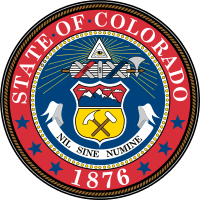 On Thursday, the Colorado Court of Appeals affirmed a lower court ruling striking down rules reducing or eliminating disclosure requirements for issue committees, political committees, and more than 500 political organizations. The rules, put forth by Secretary of State Scott Gessler in 2012, also capped penalties for failure to file major contributor reports in the days leading up to an election.
On Thursday, the Colorado Court of Appeals affirmed a lower court ruling striking down rules reducing or eliminating disclosure requirements for issue committees, political committees, and more than 500 political organizations. The rules, put forth by Secretary of State Scott Gessler in 2012, also capped penalties for failure to file major contributor reports in the days leading up to an election.
Challengers argued the rules were invalid because Gessler exceeded his authority by effectively amending the Colorado constitution and campaign finance laws passed by the General Assembly.
In addition to finding the rule changes invalid, the appeals court overturned Gessler’s 2012 rule narrowing the definition of “electioneering communications.”
December 13, 2013 •
Texas Ethics Commission Condemns Misleading Campaign Communications
The Texas Ethics Commission issued a resolution “unanimously condemn[ing] the use of misleading campaign communications regarding the activities of the [Ethics] Commission.” In its resolution, issued on December 3, 2013 and released online this week, the commission states the use […]
 The Texas Ethics Commission issued a resolution “unanimously condemn[ing] the use of misleading campaign communications regarding the activities of the [Ethics] Commission.”
The Texas Ethics Commission issued a resolution “unanimously condemn[ing] the use of misleading campaign communications regarding the activities of the [Ethics] Commission.”
In its resolution, issued on December 3, 2013 and released online this week, the commission states the use of statements like “‘a sworn complaint has been filed against Candidate A’ or ‘the Texas Ethics Commission is investigating a complaint against Candidate A’ are improper attempts to mislead the public.”
The commission asserts “anyone can file a complaint” with or without merit and the commission must investigate every sworn complaint, “whether it has merit or not.” Because of that, the bipartisan commission finds the use of such campaign advertising “an unfair practice” and argues the use of statements concerning the mere filing of a complaint or a legally required investigation of a complaint doesn’t provide “meaningful information” to voters.
Photo of the Texas State Capitol dome interior by Edward Uthman in Wikimedia Commons.
December 13, 2013 •
Friday Government Relations News Roundup
Lobbying “New lobbying business slows to a trickle” by Byron Tau in Politico. “For K St., nowhere to go but up” by Kevin Bogardus and Megan R. Wilson in The Hill. “Under contract” in The Hill. “Major Dem fundraiser closes […]
 Lobbying
Lobbying
“New lobbying business slows to a trickle” by Byron Tau in Politico.
“For K St., nowhere to go but up” by Kevin Bogardus and Megan R. Wilson in The Hill.
“Under contract” in The Hill.
“Major Dem fundraiser closes lobby shop” by Megan R. Wilson in The Hill.
“ʹLobbyistʹ Not Curse Word to All Influencers” by Dave Levinthal in The Center for Public Integrity.
“Ex-congressman lobbies for group he used to fund” by Paul Singer in USA Today.
“SpaceX Launches Second Lobbying Team” by Kent Cooper in Roll Call’s Political MoneyLine.
San Francisco: “S.F. lobbying laws due for tightening” in the San Francisco Chronicle.
Campaign Finance
“Deals on campaign finance, corruption likely in Albany” by Yancey Roy in Newsday.
“All Senate Freshmen Now Have Personal PACs” by Kent Cooper in Roll Call’s Political MoneyLine.
Maine: “Use of ‘large, untraceable expenditures’ to influence Maine elections jumps 600 percent, report says” by Mario Moretto in the Bangor Daily News.
Michigan: “Legislature approves increase in campaign contributions, but says some donors can stay anonymous” by The Associated Press in Crain’s Detroit Business.
Missouri: “Nixon urges Missouri campaign contribution limits” by Bill Draper (Associated Press) in the Columbian Missourian.
Vermont: “Ruling on super PACs may ripple in Vt.” by Neal Goswami in the Times Argus.
Ethics
“The Year in Congressional Ethics | A Question of Ethics” by Simon Davidson in Roll Call.
Alabama: “Alabama ethics Director Jim Sumner wins national award for his work” by The Associated Press in The Republic.
Georgia: “Subpoenas related to Ga. gov’s ethics complaints” by Christina A. Cassidy (Associated Press) in The Atlanta Journal-Constitution.
Kentucky: “Former lawmaker won’t face sanctions from House” by Roger Alford (Associated Press) in the San Francisco Chronicle.
West Virginia: “W.Va. ethics panel admits open meetings violation” by The Associated Press in The Herald Dispatch.
West Virginia: “For first time in years, Ethics Commission full” by Phil Kabler in the Charleston Gazette.
Open Government
“This Group Could Make (or Break?) FOIA Reform” by Joseph Marks in Nextgov.
Government Tech and Social Media
“The Future of Election Monitoring” by Jessica McKenzie in TechPresident.
December 10, 2013 •
Hawaii Ethics Commission Issues New Advisory
The Hawaii State Ethics Commission issued an advisory last week urging public school employees to refrain from promoting charitable fundraisers at school. The advisory was issued after Department of Education teachers and administrators were asked to support and encourage students […]
 The Hawaii State Ethics Commission issued an advisory last week urging public school employees to refrain from promoting charitable fundraisers at school.
The Hawaii State Ethics Commission issued an advisory last week urging public school employees to refrain from promoting charitable fundraisers at school.
The advisory was issued after Department of Education teachers and administrators were asked to support and encourage students to participate in a popular holiday fundraising campaign for the Make-A-Wish Foundation.
The state ethics code prohibits state employees from using work time and state resources for non-state related business purposes, which generally include supporting or promoting private charities.
December 10, 2013 •
Honolulu Administrative Department Claims Authority to Issue Ethics Advice
Honolulu Mayor Kirk Caldwell’s administration is currently at odds with the City Ethics Commission. Earlier in the year the Commission inquired as to whether the Department of the Corporation Counsel has the power and duty to advise city employees on […]
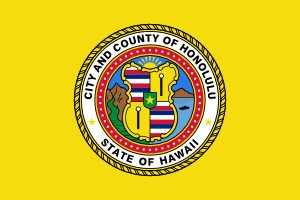 Honolulu Mayor Kirk Caldwell’s administration is currently at odds with the City Ethics Commission. Earlier in the year the Commission inquired as to whether the Department of the Corporation Counsel has the power and duty to advise city employees on matters of ethics.
Honolulu Mayor Kirk Caldwell’s administration is currently at odds with the City Ethics Commission. Earlier in the year the Commission inquired as to whether the Department of the Corporation Counsel has the power and duty to advise city employees on matters of ethics.
In a memorandum to all municipal agencies, the Department announced it does have said authority; the Ethics Commission disagrees.
The administrative decision may potentially result in city attorneys and Ethics Commission attorneys offering conflicting advice. Also problematic, the Ethics Commission is insulated from retaliation as an autonomous agency, whereas city attorneys are afforded no such protection.
If nothing else, the memo is likely to cause public confusion as the relationship between administration and Commission deteriorates. Subpoenas may be on the horizon for Mayor Caldwell’s top executives as the Ethics Commission investigates possible corruption in city hall.
December 10, 2013 •
Ohio School Board Member Resigns After Allegations of Ethics Violations
State school board member Bryan Williams resigned after allegedly violating provisions of the state ethics laws by lobbying the government for private interests. The law prohibits an elected member of a state board or commission from receiving compensation for services […]
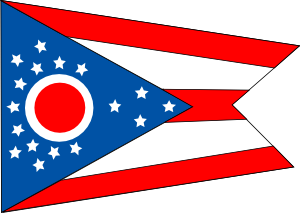 State school board member Bryan Williams resigned after allegedly violating provisions of the state ethics laws by lobbying the government for private interests. The law prohibits an elected member of a state board or commission from receiving compensation for services he or she performs personally on a matter before any state agency.
State school board member Bryan Williams resigned after allegedly violating provisions of the state ethics laws by lobbying the government for private interests. The law prohibits an elected member of a state board or commission from receiving compensation for services he or she performs personally on a matter before any state agency.
When first appointed to fill a vacant seat, an exemption in state law allowed Williams to simultaneously serve in a public position while advocating as a lobbyist. Upon his election in 2012, however, the exemption no longer applied. The Ohio Ethics Commission has not confirmed any investigation or future legal actions.
December 10, 2013 •
Missouri Special Session Adjourns Sine Die
On December 6, the Missouri General Assembly adjourned its first special session sine die. The legislative body convened earlier in the week to prepare an aerospace industry incentive bill. Effective immediately, Senate Bill 1 is designed to encourage growth and […]
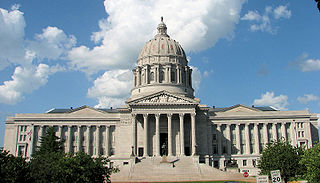 On December 6, the Missouri General Assembly adjourned its first special session sine die.
On December 6, the Missouri General Assembly adjourned its first special session sine die.
The legislative body convened earlier in the week to prepare an aerospace industry incentive bill.
Effective immediately, Senate Bill 1 is designed to encourage growth and expansion of the aerospace industry and serves as an incentive proposal for Boeing to build its new commercial 777X airplane within the state.
Photo of the Missouri State Capitol courtesy of RebelAt on Wikimedia Commons.
December 10, 2013 •
State Representative Files Hundreds of Complaints with Oklahoma Ethics Commission
State Rep. Mike Reynolds filed hundreds of ethics complaints with the Oklahoma Ethics Commission. The complaints, filed against candidates and legislators, call attention to what he believes is a lack of enforcement. Most of the violations involved late filings of […]
 State Rep. Mike Reynolds filed hundreds of ethics complaints with the Oklahoma Ethics Commission. The complaints, filed against candidates and legislators, call attention to what he believes is a lack of enforcement.
State Rep. Mike Reynolds filed hundreds of ethics complaints with the Oklahoma Ethics Commission. The complaints, filed against candidates and legislators, call attention to what he believes is a lack of enforcement.
Most of the violations involved late filings of campaign contribution and expenditure reports. Reynolds reports he spent three weeks, using computer programs he developed, to analyze Ethics Commission data. Lee Slater, the Oklahoma Ethics Commission’s new executive director, declined to comment on the complaints. –
December 9, 2013 •
Michigan Legislature Considers Changes to Campaign Finance Law
The Michigan Legislature is considering a bill to amend existing campaign finance law. The bill would require those making independent expenditures for a candidate or ballot question within 60 days of an election where that candidate or ballot question is […]
 The Michigan Legislature is considering a bill to amend existing campaign finance law.
The Michigan Legislature is considering a bill to amend existing campaign finance law.
The bill would require those making independent expenditures for a candidate or ballot question within 60 days of an election where that candidate or ballot question is on the ballot to file an electronic report with the secretary of state within seven days of making such expenditure.
Failure to file such a report would result in a late filing fee equal to the lesser of the total amount of the independent expenditure or $2,000.
December 9, 2013 •
Delaware to Debut New Campaign Finance Website 12/17
The Delaware Department of Elections has begun construction on a new campaign finance reporting system, which will debut on December 17. The new system will allow all contribution reports, both those filed online and via paper submission, to be searched […]
 The Delaware Department of Elections has begun construction on a new campaign finance reporting system, which will debut on December 17.
The Delaware Department of Elections has begun construction on a new campaign finance reporting system, which will debut on December 17.
The new system will allow all contribution reports, both those filed online and via paper submission, to be searched with one system. It will allow the public to track all contributions by one donor, an action taking more than 40 hours using the current online system.
The system upgrade does not affect filing or reporting requirements.
December 9, 2013 •
State & Federal Communications Presents “Been There Done That”
State and Federal Communications is the proud sponsor of the closing session at the Professional Women in Advocacy Conference on December 10, 2013. The event, which is designed for people engaged in all forms of advocacy, will be held in […]
State and Federal Communications is the proud sponsor of the closing session at the Professional Women in Advocacy Conference on December 10, 2013. The event, which is designed for people engaged in all forms of advocacy, will be held in Washington, D.C. from December 9-10, 2013.
According to the organization’s website: “To give us a strong close to our conference and leave participants with plenty of food for thought, State & Federal Communications will present a session called “Been There Done That.” This discussion features Moderator Sam Bennett, President of the Women’s Campaign Fund, Former U.S. Senator Blanche Lincoln and Former U.S. Representative Mary Bono. These accomplished women will discuss their path to leadership and their post public office success in the world of advocacy. Tuesday, December 10th at 2:15pm.”
We are also excited to have another strong presence at this exciting conference. Federal Compliance Associate Rebecca South and Marketing Manager Melissa Coultas will be attending. Rebecca South will also be offering the presentation “Mentor Center: Public Speaking” on Tuesday, December 10.
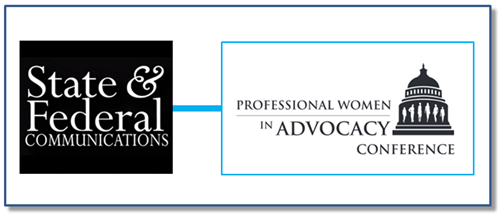
December 9, 2013 •
Los Angeles, California Keeps Gift Limit at $100
City Council President Herb Wesson abandoned a plan to increase the value of gifts lawmakers can accept from companies seeking city contracts, opting to leave the amount unchanged at $100. In October, City Council instructed the city’s lawyers to draft […]
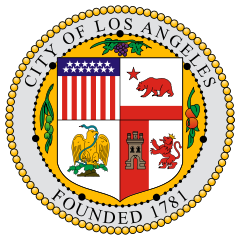 City Council President Herb Wesson abandoned a plan to increase the value of gifts lawmakers can accept from companies seeking city contracts, opting to leave the amount unchanged at $100.
City Council President Herb Wesson abandoned a plan to increase the value of gifts lawmakers can accept from companies seeking city contracts, opting to leave the amount unchanged at $100.
In October, City Council instructed the city’s lawyers to draft an ordinance increasing the gift limit to $150, despite a recommendation by the Ethics Commission to prohibit most gifts of any value.
The city’s ethics law will continue to bar lobbyists from giving gifts to elected officials and other high-level decision makers.
Those who do not have business before the city will continue to be permitted to give gifts to elected officials within the state limit of $440 per year. –
December 6, 2013 •
We’re Heading to COGEL!
State and Federal Communications has a team of eight leaving tomorrow to attend the 2013 Council on Government Ethics Laws (COGEL) Annual Conference! It will be held from December 8-11 in Quebec City. We never miss a COGEL conference, and […]
 State and Federal Communications has a team of eight leaving tomorrow to attend the 2013 Council on Government Ethics Laws (COGEL) Annual Conference! It will be held from December 8-11 in Quebec City.
State and Federal Communications has a team of eight leaving tomorrow to attend the 2013 Council on Government Ethics Laws (COGEL) Annual Conference! It will be held from December 8-11 in Quebec City.
We never miss a COGEL conference, and this one should prove to be exciting. It will be good to see many familiar faces.
Here is what the COGEL website says about this year’s event:
This year’s conference brings us to the majestic Le Chateau Frontenac, a National Historic Site of Canada. This picture-perfect hotel is nestled in Old Quebec City, an enchanting destination that will be decked out for the holidays in December. Quebec City itself is a UNESCO Heritage Site and its cobble-stoned streets will lead you to charming neighborhood bistros, quaint shops and delicious bakeries. You will be steps away from historical attractions, shopping and plenty of attractions for you and your family.
Whether you are a first-time attendee or a veteran, engaging and informative sessions await you, all directly related to your work. You will learn about the latest legal developments, share important tips and best practices with COGEL partners and capture new ideas to take back to your office.
The photo of Le Chateau Frontenac courtesy of AirBete on Wikimedia Commons.
State and Federal Communications, Inc. provides research and consulting services for government relations professionals on lobbying laws, procurement lobbying laws, political contribution laws in the United States and Canada. Learn more by visiting stateandfed.com.


